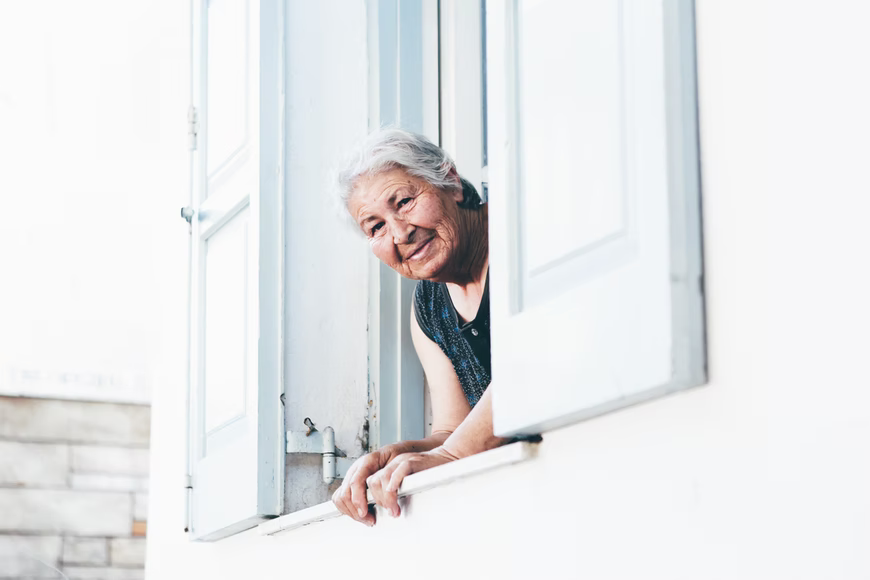No place offers seniors the comfort, familiarity, and joys of life like home. However, the decision for your elderly loved ones to continue staying at home should be met with a high level of attention to their safety and unique needs. Here are nine home safety tips for seniors.
1. Be ready to handle emergencies
Seniors can face medical emergencies at any time, either due to their medical conditions or accidents, and the best way to manage these situations is to ensure they get instant help. Since it is impossible to be with your loved ones each minute of the day, investing in high-quality senior medical alert systems Canada is critical. These systems will ensure that older adults are always safe even when no one is around, as they can quickly call for medical assistance with a simple push of a button.
2. Prevent slip and fall hazards
According to the CDC, older adult falls are increasing by the day, leading to more injuries and deaths, making it a severe problem that you cannot ignore. Prioritize preventing these accidents by removing all slip and fall hazards in and around the house by:
- Clearing clutter, especially along walkways
- Install grab bars in toilets and bathrooms
- Only use non skid mats
- Modifying the stairs for seniors
- Discarding or repairing old furniture
- Creating more open environments
3. Keep the house well lit
Most seniors have failing eyesight, and the best way to ensure they can move around the house without any restrictions is by keeping the house well-lit. Pay extra attention to corridors, pathways, stairs, and frequently used rooms such as toilets, kitchen, bedroom, and living room areas.
4. Protect the house against fires
One of the common hazards you shouldn’t ignore when making a home safer for seniors is house fires. Remember, older adults have mobility issues and will not be quick to react in case of a fire, and you should prioritize preventing these accidents. To do this, you will need to ensure:
- All kitchen appliances are well-maintained or have updated safety features
- Ensure there are no wiring issues
- The smoke and fire alarm is always functioning
- Avoid the use of candles and space heaters
5. Beware of intrusions
Limit the risks of unwanted intrusion by burglar-proofing a senior’s home by:
- Installing a reliable home security system
- Glazing the windows and doors to make them harder to break
- Keeping all unused doors locked
- Removing all potential hiding spots around the house
- Installing motion sensor security lights
6. Check in with them regularly
An effective way of taking care of your aging parents even when you have busy schedules is by regularly checking in with them. That single phone call could make all the difference by helping you assess whether your loved ones need extra care or not.
7. Hire in-home care assistants
There comes a time when a senior can no longer take care of themselves, and the best way to make home living exciting is by hiring in-home care assistants. These professionals will give you the peace of mind that your loved ones will be well-taken care of even when you are not around.
8. Make the stairs safe
As the elderly begin to lose strength and flexibility, going up and down the stairs becomes challenging and dangerous. To make the stairs safe, get stairlifts fitted in and outside the senior’s home to ease movement. Add railings and test to ensure the bolts and nuts are tight enough. If the railing is no longer safe for your loved one, replace it.
Seniors with partial vision may not differentiate one stair step from the next. Use a different colored duct tape over each stair to make it easier to spot the difference, enhancing senior safety. You should also have someone clear the front steps or driveway of snow and ice during the winter to prevent falls.
9. Invest in smart home devices
While the elderly may need support from caregivers and family members, a home outfitted to cater to common age frailties such as increased fall risks, decreased mobility, and reduced vision would be a great alternative. App-controlled and hands-free devices make life easier and safer for seniors who find it challenging to remember schedules or get around, regardless of how far they live from their loved ones. Smart home technology allows you to customize the devices depending on your preferences and schedules.
Smart home devices like smoke alarms, contact sensors, voice-activated speakers, water-leak sensors, smart locks, smart lighting and appliances, virtual assistants, smart speakers, smart thermostats, robot vacuums, and discreet cameras can make their daily life more convenient and safer. You can set medication reminders and make landline emergency calls using smart devices.
Endnote
Focusing on the safety of your elderly loved ones is the first step to ensuring they are always healthy and happy at home, and these tips will help you create a better living environment.
